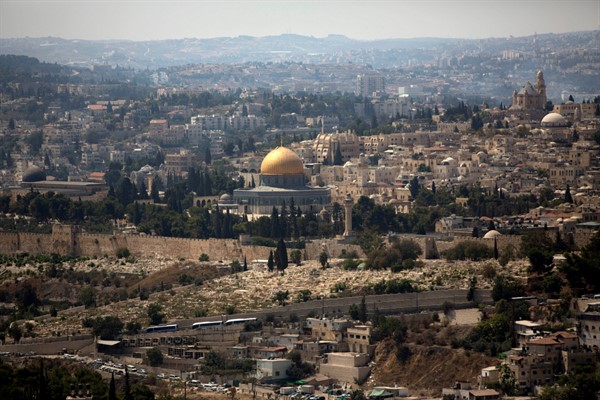Editor’s Note: Every Monday, Managing Editor Frederick Deknatel highlights a major unfolding story in the Middle East, while curating some of the best news and analysis from the region. Subscribers can adjust their newsletter settings to receive Middle East Memo by email every week.
When Israel struck deals to normalize relations with four Arab countries last year, expectations were fairly tempered—at least outside of the Trump White House, which had brokered them, and the Prime Minister’s Office in Jerusalem, where Benjamin Netanyahu was eager to reap the political windfall. Some of that skepticism about whether this really was a new era of Middle East peace had to do with the blatant quid pro quo terms of those agreements, as the Trump administration had essentially bought Israel diplomatic ties with more of the Arab world. In exchange for recognizing Israel, Morocco got U.S. recognition of its sovereignty claims over the long-disputed territory of Western Sahara; Sudan got billions in U.S. financial assistance and removal from Washington’s state sponsors of terrorism list; and the United Arab Emirates got contracts for armed Reaper drones and the F-35.
But doubts about normalization also had to do with an obvious reality in the region: the state of what for years had been Israel’s only two Arab peace treaties, with Egypt and Jordan, which delivered an end to hostilities and not much else. Israel has had a cold peace with both Cairo and Amman since those deals were signed, in 1979 and 1994, respectively. And the cold peace with Jordan, especially, has been getting a lot colder.

